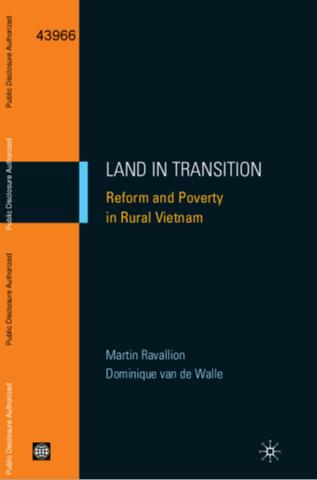Land Markets : Promoting the Private Sector by Improving Access to Land
Land markets that allow access to
land-and to buildings-through secure property rights, at
transparent prices, and with efficient permitting processes
and land tax systems are essential to a good business
environment. Creating such markets, however, can be a long,
complex, politically charged process, especially where most
land is untitled and where there are conflicting claims. But
experience points to practical interim or step solutions


